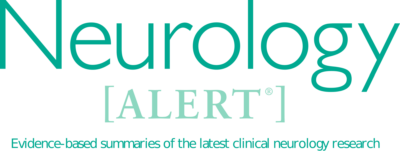
Neurology Alert – May 1, 2018
May 1, 2018
View Issues
-
Phenytoin as a Second-line Treatment for Status Epilepticus: What’s the Evidence?
In this systematic review, the evidence supporting the use of intravenous phenytoin for convulsive status epilepticus was analyzed critically and did not demonstrate strong evidence to support its use as a preferred second-line agent.
-
Differences Between Type 1 and Type 2 Diabetic Neuropathy
Microstructural nerve damage in distal symmetric diabetic neuropathy differs between subjects with type 1 diabetes (T1D) and type 2 diabetes (T2D). The predominant nerve lesions in T1D correlated with hyperglycemia and nerve conduction impairment, while the predominant lesions in T2D correlated with dyslipidemia.
-
Sleep Habits and the Development of Dementia
The relationship between quality of sleep and the development of dementia is controversial and not yet clearly elucidated nor understood.
-
Rapid Screening for Future Risk of Parkinson’s Disease Dementia
The Montreal Parkinson Risk of Dementia Scale provides a simple eight-item screening tool with high predictive value for developing Parkinson’s disease dementia.
-
Opioids Not Better for Chronic Back Pain
Chronic use of opioids for management of back pain is controversial and hotly debated. This randomized trial showed no benefit of opioids over multimodality non-opioid treatments, consistent with many other observational studies.
-
Postoperative Atrial Fibrillation After Coronary Artery Bypass Graft
The data from this study do not indicate that new-onset postoperative atrial fibrillation should be regarded as having the same risks as primary nonvalvular atrial fibrillation in terms of long-term thromboembolic risk, and that anticoagulation in this group may not be necessary unless the atrial fibrillation is persistent.
